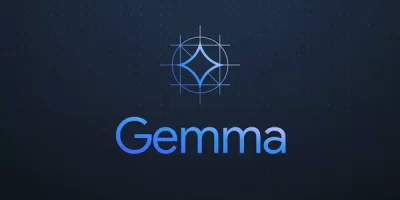How good is AI at drafting legal documents?
Thanks to my friend Ali for inspiring me to explore this topic with Jasper.

Artificial intelligence (AI) has been touted as a game-changer in many industries in recent years. From healthcare to finance, there are a few areas that have not been affected by the rise of AI. The legal profession is no exception. A growing number of firms are now using AI to assist with various tasks, from research to document review. But how good is AI at drafting legal documents?
To answer this question, it is first necessary to understand what AI is and how it can be used in the legal field. AI technology relies on algorithms to learn and process information. In the context of legal drafting, this means that AI can be used to identify patterns in existing documents and use this data to generate new documents. However, it is essential to note that AI is not yet capable of replacing human lawyers. While AI can assist with the drafting process, ultimately it is the lawyer who must review and approve the final document.
So far, AI has shown promise in its ability to draft simple legal documents such as contracts and non-disclosure agreements. However, more complex documents such as wills and trusts are still best drafted by human lawyers. This is because AI technology is still developing and has not yet reached the level of sophistication required to handle these types of documents. As AI technology continues to evolve, it is likely that more and more firms will begin to use AI for drafting legal documents and a variety of other tasks, including drafting complex legal documents.
Will paralegals or junior partners soon be replaced by artificial intelligence?
Some experts believe that AI will eventually take over many tasks currently performed by paralegals and junior partners in law firms. After all, AI can already perform research and document reviews more quickly and accurately than humans. In addition, AI is capable of tracking deadlines and flagging potential conflicts of interest. As AI continues to become more sophisticated, it seems likely that it will eventually replace humans in many legal roles. Of course, this raises the question of whether or not this is a good thing. While AI can perform many tasks more efficiently than humans, there are some things that only humans can do. For example, AI cannot yet provide the same level of personal attention and care that humans can. As such, it is likely that AI will never completely fully replace human beings in the legal profession.
Can AI detect anomalies in legal documents faster than humans can?
The question of whether artificial intelligence can outperform humans when it comes to tasks like document review is an important one, with implications for many different industries. In the legal field, for instance, attorneys often need to comb through large numbers of documents in order to find relevant information. This can be a time-consuming and error-prone process, which is why some have suggested that AI might be able to do it better. In theory, AI could be used to scan documents for key terms and flag anything that appears out of the ordinary. While there is no doubt that AI has the potential to speed up document review, it is important to remember that it is still in its early stages of development. As such, there are likely to be some deficiencies when compared to the human mind. For now, then, it seems that humans will continue to play an important role in the legal field.
In recent years, artificial intelligence has increasingly been used to assist humans in a variety of tasks, from medical diagnosis to financial analysis. Now, some legal experts are wondering whether AI could also be used to analyze legal documents for anomalies. Given the large volume of documents that lawyers must deal with on a daily basis, it is not surprising that many see AI as a potential timesaver. However, there are several reasons why AI might not be well suited for this task. For one thing, legal documents often contain complex language that is difficult for computers to understand. In addition, the context in which a document was created can be important in determining its meaning, and this is something that AI struggles with. Finally, humans are still better than computers at making judgments about what is relevant and what is not. For all these reasons, it is unlikely that AI will replace human lawyers anytime soon.
Is it still worthwhile studying for a law degree in 2022?
The law is an ever-changing field, and those who practice it must be prepared to adapt to new technologies and developments. This is especially true in the field of legal research, where the advent of online databases and search engines has revolutionized the way lawyers find and use information. In this rapidly changing landscape, a law degree remains one of the best ways to gain the skills and knowledge needed to succeed as a lawyer. By providing a comprehensive grounding in legal principles and history, as well as exposure to different areas of law, a law degree gives students the ability to think critically about legal issues and apply their knowledge in a variety of contexts. In an increasingly competitive legal market, those who have a law degree will be well-positioned to succeed.
Will AI be allowed to represent clients in court, and how would that work, considering the AI has no human form to enter the courtroom?
There is currently no legal precedent for allowing AI to represent clients in court, as AI does not have a human form. However, there are a number of ways that AI could be used to assist lawyers in court proceedings. For example, AI could be used to conduct research, prepare documents, and manage schedules. AI could also be used to help lawyers identify patterns and trends in cases. In the future, it is possible that AI will be allowed to represent clients in court. If this happens, the AI would need to be able to communicate with the judge and other lawyers in the courtroom. The AI would also need to be able to understand the legal proceedings and make arguments on behalf of its client.
View fullsize

Go to Source
Author: Steve Digital
https://www.artificial-intelligence.blog/ai-news/how-good-is-ai-at-drafting-legal-documents



